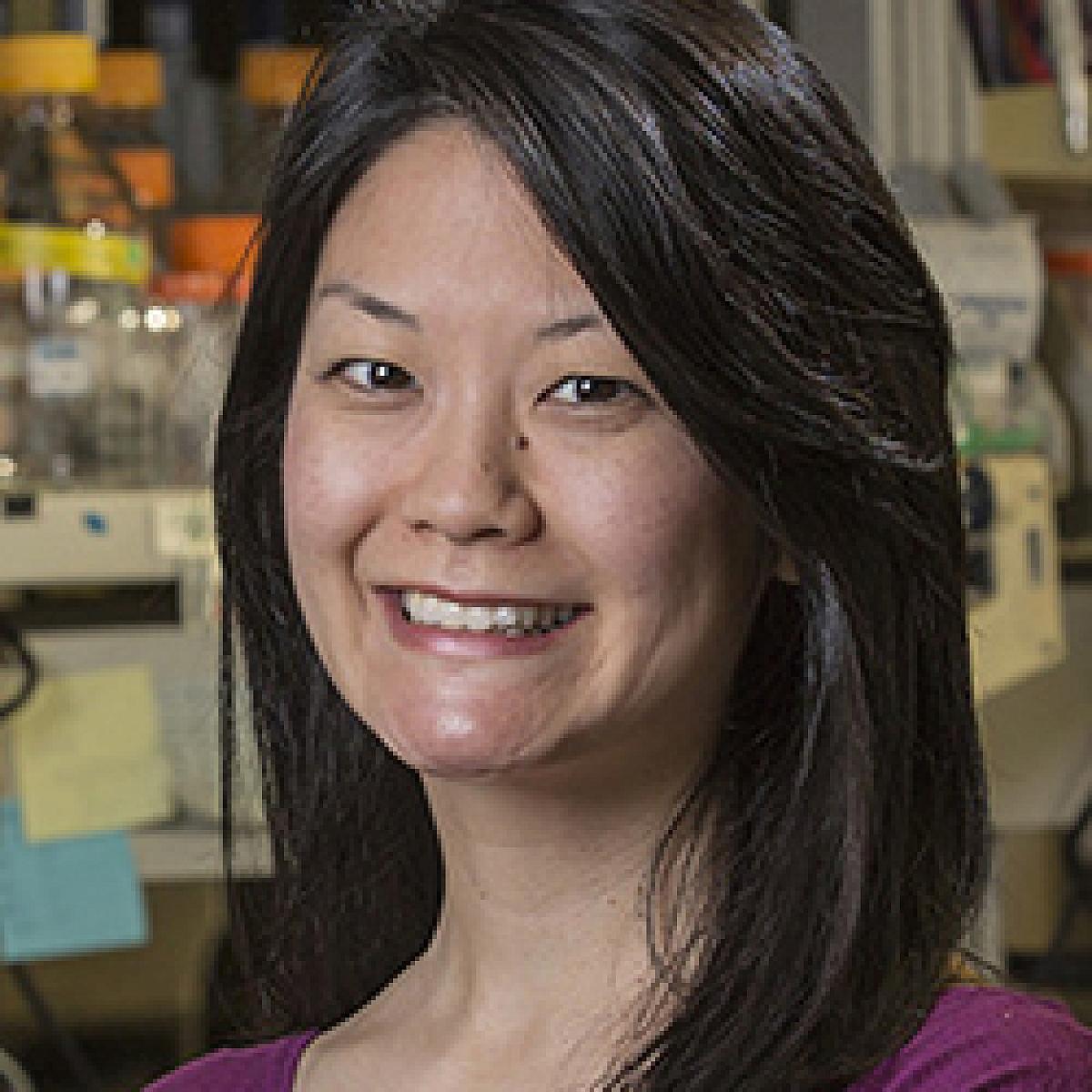KEY DATES
January 15, 2024
Applications Open
March 20, 2024
Application Deadline
March 28 - April 5, 2024
Virtual Interviews
April 10, 2024
Notification of Awards
June 3rd, 2024
Program Begins
May 31st, 2025
Program Ends
The mission of the Intermountain PREP (IM-PREP) is to build a diverse biomedical research workforce reflecting the talent pool of our diverse population. The University of Utah is committed to fortifying, sustaining and amplifying the STEM pipeline that trains and launches a diverse research workforce.
IM-PREP will specifically address the leaks in the pipeline leading from undergraduate to doctoral training of groups underrepresented in STEM. IM-PREP focuses on students from diverse underrepresented backgrounds that demonstrate a strong drive for research and would benefit from additional research-intensive training experiences and professional development, enhancing their successful transition to top-tier doctoral programs, as well as their long-term retention in PhD-based career tracks.
IM-PREP will provide key proposed activities that include
- holistic, culturally competent mentored experiences to undertake hypothesis-driven research;
- scientific coursework and professional workshops that enhance strong oral and written communication skills, and instill successful strategies for applying to graduate school;
- an innovative, inclusive support system that develops and implements Individual Development Plans and enhances their self-confidence, self-efficacy, and authentic scientific identity through peer support, cultural STEM communities and diverse role-models.
Building on institutional momentum and infrastructure at the University of Utah that is dedicated to supporting STEM equity, diversity and inclusion, IM-PREP will provide Scholars with critical thinking and research experience that will enable persistence in high-quality graduate programs and beyond in academic and non-academic biomedical career tracks.
Learn more about the IM-PREP program at the University of Utah Watch the recording of the virtual Open House/Info Session
Program requirements
- A passion for the biomedical sciences.
- BA or BS in a STEM field, awarded no more than 36 months prior to applying and by June, 2024.
- Interest in pursuing an advanced research degree.
- Prior lab experience is not required.
Compensation
- $35,000/yr
- Relocation benefit of $1,000
- Travel allowance to attend a scientific conference
Eligibility
United States citizens or permanent residents with a BS or BA degree in a STEM field. Selection preference will be given to members of communities traditionally underrepresented in STEM as defined by the NIH. Degree must be conferred prior to the program start date.
How to Apply
Applications should include the following materials:
-
Completed online application form with the following documents in the form of a single pdf
Cover Letter
CV/Resume
Personal Statement (500 words max)
Explain your background and how your interests in STEM developed.Statement of relevant coursework or past research experience (500 words max)
Describe key courses you’ve taken or research experiences you’ve had and explain how they have prepared you for research work.Statement of Career Goals and Research Interests (250 words max)
Explain your long-term career goals and where you see your research heading in the future.Unofficial College Transcripts
- Two letters of recommendation emailed to IM-Prep@utah.edu:
Each letter should state the APPLICANT’S name in the subject line.
Program Directors
IM-PREP Program Faculty consists of 43 full-time faculty members and represent a diverse spectrum of research disciplines from 14 departments and 5 different Colleges or Schools: School of Medicine, College of Science, College of Engineering, College of Pharmacy, and College of Health. Follow the links below to learn more about their research programs.
Faculty
| Name | Department | Research |
| Babst, Markus | School of Biological Sciences | Protein Trafficking |
| Bandarian, Vahe | Chemistry | biosynthesis, enzymes, modified transfer RNA base, queuosine, ubiquitous RNA modification |
| Barrios, Amy | Medicinal Chemistry | Metals in Medicine, Probes of Tyrosine Phosphorylation, Functional Profiling of the Microbiome |
| Bass, Brenda | Biochemistry | Double-Stranded RNA (dsRNA), RNA Editing, RNA Interference, DICER |
| Beaudin, Anna | Microbiology and Immunology | Fetal hematopoiesis, blood production, immune function, disease susceptibility |
| Caron, Sophie | School of Biological Sciences | Drosophila melanogaster, mushroom body, multisensory integration, sensory systems, connectomics, learning and memory |
| Chow, Clement | Human Genetics | Genetic variation, ER stress, Disease modifiers |
| Deans, Michael | Neurobiology | Developmental neurobiology, retina, inner ear, planar polarity |
| Dorsky, Rich | Neurobiology | Developmental Neurobiology |
| Douglass, Adam | Neurobiology | Neuronal Function, optical methods |
| Drummond, Micah | Microbiology and Immunology | Aging, Muscle, Inflammation, Exercise, Nutrition, Metabolism, Translational Research |
| Ducker, Greg | Biochemistry | Cancer Metabolism, Mass Spectrometry, Antimetabolites, Chemical Biology, Mitochondria, Tetrahydrofolates |
| Edgar, Bruce | Oncological Sciences | Cell growth and proliferation, Drosophila melanogaster, Stem Cells |
| Elde, Nels | Human Genetics | Evolutionary Cell Biology, Virology, Microbiology, Genetics, Genome Science, experimental evolution |
| Evavold, Brian | Microbiology and Immunology | T cell antigen recognition |
| Fairfax, Keke | Microbiology and Immunology | B cells, macrophages, schistosomiasis, maternal infection, pathogenesis |
| Franzini, Raphael | Medicinal Chemistry | Drug development, chemical probes, imaging agents |
| Funai, Katsu | Nutrition and Integrative Physiology | Lipids, mitochondria, bioenergetics, metabolic disease |
| Ghandehari, Hamid | Pharmaceutics and Pharmaceutical Chemistry | Nanomedicine and Drug Delivery |
| Hammond, Ming | Chemistry | Biosensors, RNA, Fluorescence Imaging, Bacterial and Immune Cell Signaling |
| Hughes, Adam | Biochemistry | Organelle communication and disease, cell biology, organelle quality control, and nutrient sensing |
| Hwang, Eileen | Opthamology | Biochemistry, extracellular matrix structure of the vitreous, pediatric vitreoretinal diseases |
| Kay, Michael | Biochemistry | Protein Design, Viral Entry, Synthetic Biology, and Chemical Protein Synthesis |
| Keefe, Kristen | Pharmacology and Toxicology | Neuroscience, Neurological and neurophychiatric disorders basal ganglia, Neurobiology |
| Kwan, Kristen | Human Genetics | Zebrafish, Eye Development and Morphogenesis |
| Lamb, Tracey | Microbiology and Immunology | Malaria Immunopathogenesis |
| Mulvey, Matthew | Microbiology and Immunology | Bacterial Pathogenesis |
| Murtaugh, Charles | Human Genetics | Pancreas Development, Pancreatic Cancer, Regeneration |
| Reilly, Chris | Pharmacology and Toxicology | Pulmonary Toxicology, Drug metabolism and pharmacokinetics, Drug Discovery |
| Rog, Ofer | School of Biological Sciences | Chromosome Biology, Meiosis, Synaptonemal complex, C. elegans, Microscopy |
| Roh-Johnson, Minna | Biochemistry | Cell migration, tumor microenvironment, cytoskeleton, zebrafish, mouse |
| Rothenfluh, Adrian | Human Genetics | Modeling Addiction and other Neuropsychiatric Illnesses in Drosophila |
| Rutter, Jared | Biochemistry | Cancer metabolism, Diabetes & obesity, Metabolic signaling |
| Schmidt, Eric | Medicinal Chemistry | Symbiosis, microbiome, metagenomics, synthetic biology, natural products chemistry, biosynthesis |
| Shen, Peter | Biochemistry | Protein Homeostasis, Protein Structure, cryo-EM, Image Processing, Protein quality control, Proteopathy, Protein Complexes |
| Shepherd, Jason | Neurobiology | Synaptic plasticity, memory and neurological disorders, Memory Formation |
| Sigala, Paul | Biochemistry | malaria biochemistry and cell biology, heme metabolism, organelle function and adaptation |
| Snyder, Eric | Oncological Sciences | Mouse Models of Cancer |
| Stanfield, Gillian | Human Genetics | Cell Division, Cell Migration, Cell Competition |
| Tantin, Dean | Microbiology and Immunology | Gene Regulation in Mammals |
| Vetter, Monica | Neurobiology | Chromatin modifiers in development, Microglia in retinal development and disease |
| Wilcox, Karen | Pharmacology and Toxicology | Anticonvulsant Drugs, inflammation, epilepsy |
| Williams, Megan | Neurobiology | Neurobiology, Molecular mechanisms of synapse formation |
| Yost, Joe | Neurobiology | Genes & Developmental Mechanisms |











